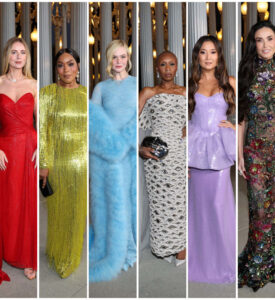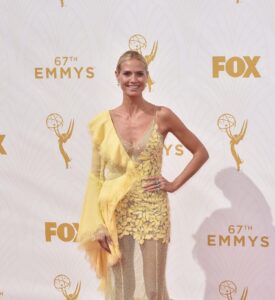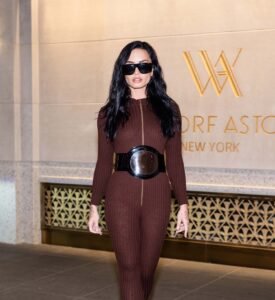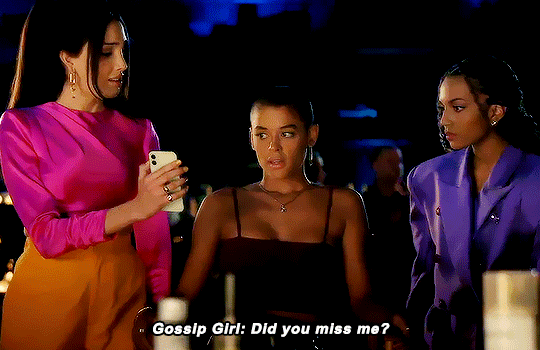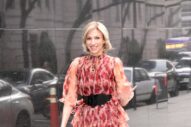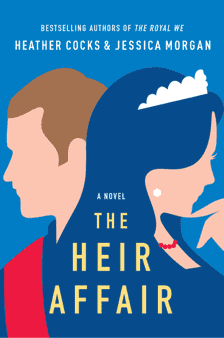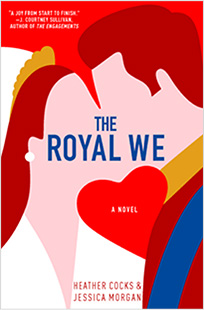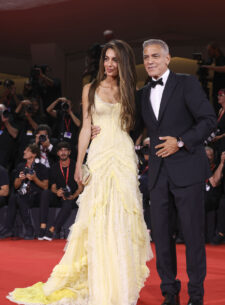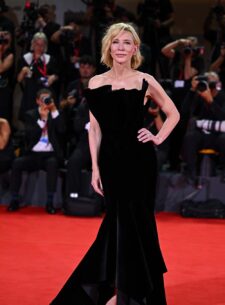One flaw in reboot culture is an assumption that viewer nostalgia for a particular show is tied to the show or the intellectual property itself, rather than the fuller experience of where we all were in our lives when it came to us the first time. I don’t want, for example, to return to Tree Hill and watch the gang be adults together, or a new crop of kids playing basketball on the court where Chad Michael Murray did all his best healing. But I love remembering girls’ nights gathering on the couch and gossiping over pizza before turning on an episode and shrieking when Dan Scott makes a murder list, or a dog eats his heart. I don’t care what Brenda Walsh is doing now; I just want to turn on a re-run of her faking a terrible French accent to attract Monsieur Reek from Wisconsin while Donna tries to become a model in Paris, because that show was important to me during my formative years and I love it as it is, as it was, where it was. Anchored in its historical place. It reminds me of the many fictions that turn on bringing someone back from the dead, only to discover they are a shell of themselves, and that resurrection can’t simply replace what was lost.
HBO Max Gossip Girl is more trying to freshen up its corpse, inhabiting the same Upper East Side world with different characters (but it references the originals here and there). It airs its midseason finale tonight — this slim six-episode season will lead into another sometime in the fall — and as someone who watched the entirety of the original Gossip Girl but does not and never did miss Gossip Girl, I’ve consumed all five of the episodes with anthropological curiosity. Though my expectations were pretty low — perhaps unfairly, I thought at the time — I have to say I don’t think it’s good and I don’t see any evidence that it should or will have the lasting impact of the first one. You might argue I am not the target audience, but the original Gossip Girl ably straddled being a teen soap for adults and an adult soap for teens — besides which, the very essence of a revival is hoping to reel in your old aficionados even as you cast about for new ones. They don’t yet have a fan in me, for a few reasons. I’m sure this is a “too long, didn’t read” for many of you, so feel free to skip to the comments and turn them into a rumination on what reboots or revivals have worked for you and what haven’t, and why. For the rest of you:
1. Gossip Girl’s identity is revealed in the opening segment of the premiere, so it’s no longer a spoiler to tell you that she is a group of teachers at Constance Billard. And this is a hurdle I am completely unable to get past because it’s so icky. Led by Tavi Gevinson’s character, they decide to resurrect the storied name from the Dan Humphrey days in the form of an Instagram account, because — get this — they want the students to be nicer to them. Yep. They think Gossip Girl will keep everyone on better behavior, so they follow kids around New York City, taking photos of underage people in moments of varying intimacy (a 14-year old was taking off her shirt because it was drenched, but the idea was that it looked intimate, and regardless… do not photograph that, and don’t freaking stalk teenagers), and otherwise eavesdrop and spread rumors and release confidential personal information to stoke the flames of discord between the friend groups. All so their jobs will be easier. It is, to put it lightly, a fucking horrible plot decision, made worse by the show trying to pin a certain noble morality to their crusade. The beauty of the original Gossip Girl was that “she” was a chaos agent we still sorta rooted for, and ended up more of an omniscient narrator (correct me if I’m wrong, but I think some episodes didn’t even involve a big entry going up and Kristen Bell just spoke winkingly to us from the ether). It is impossible to cheer on a bunch of creepy, selfish adults who are actively, over and over, busting up kids’ scholarships and living situations and romantic lives — kids who, in no small miracle for high school, were pretty supportive and nice to each other before Gossip Girl butted in. Other than a few brief moments where one teacher or another acknowledges that they’re doing crazy shit, and a short attack of conscience from Tavi’s Kate Keller, the teachers believe wholeheartedly in their crusade. I truly cannot tell if the show’s writers themselves honestly share that point of view, but it sure feels like they’re trying to answer any potential criticism of this twist by convincing the viewer, through Tavi/Kate, that her actions are justifiable and good, with some mumbo-jumbo about how Gossip Girl is forcing people to have crucial conversations they otherwise would not. What?!? No. You cannot drop a lit match into someone’s house and then say, “But, see, it was a good idea because now you know it was flammable!” (It doesn’t help that Tavi is, unfortunately, truly bad in this part. A slyer and more adept portrayal might have helped. Maybe.)
2. Instagram has no character limit. Was the narration in the original Gossip Girl this hard to listen to? Here, she drones on and on and on and on… most boring IG captions ever. You’ll wish they’d stuck to Twitter.
3. The conflicts are still catfight-based. Gossip Girl, the in-show entity and therefore the show itself, still exists only to pit the women against each other. All the conflicts for the men exist outside of that. One guy is banging a teacher! One is questioning his sexuality (the one potentially rich story, and also the one being handled the worst/with the least attention)! One is sad that his girlfriend is not acting the way he wants her to, and he decides she’s becoming shallow, because of social media! But from what I recall, THEY are not revenging all over each other; they are not sending secrets to Gossip Girl or weaponizing anything against each other. Those sins are just for the ladies. Boring.
4. The characters are, at their core, either not well-drawn or not well-enough acted. I’ll link to a pic of the actor in each blurb, for your visual edification.
- Julien Calloway is an influencer, and a supposed social queen bee, with an occasionally distant single dad who sometimes makes her sad. But the show is reluctant to make Julien truly mean, or truly self-involved, or truly snobby, and as a result she is not truly anything. Why is she an influencer? Why does she let two bitchy teens drag her around and act as her managers and tell her what to do? Why is she beloved? Why is she feared? For the briefest of moments, it seems like we’re heading to a place where Julien questions this herself and wonders who she is, but then it’s gone. Jordan Alexander has presence, in that she’s hard to look away from, but so far she hasn’t given her character any of what’s missing on the page, so you find yourself scratching your head as to how Julien got where she is. The whole thing is flat.
- Zoya, Julien’s younger half-sister (they share a mom who died in childbirth), is the smart and scholarship student with an occasionally skeptical single dad — think Rufus Humphrey, but not pretentious. Zoya is Little J without the desire to fit in, and her worst impulses last a mere two seconds. She has the benefit of being played by Whitney Peak, who is great and for me the breakout, but Zoya was supposed to be 14 when the show started. They turned her 15 pretty quickly, but Whitney is 18 and in no way passes for 14. I understand wanting to keep everyone in high school, but I think people who are not 14 forget how young 14 really is. Plus her love interest has a receding hairline. No.
- Obie, said boyfriend (who breaks up with Julien for Zoya in the pilot), is a Dan Humphrey clone in looks and voice, but he lives a wealthy life in Williamsburg and assuages his conscience about his privilege mostly with a lot of earnest talk. He also whines about whether Zoya is changing. (I mean, she’s 15, bro. I have news for you: She’s going to change.) It’s a thankless part, and he has negative romantic chemistry with the various players.
- Audrey is Blair Waldorf’s face and a combo of Serena’s and Little J’s hair, whose divorced fashion-designer mother is going bankrupt and drinking too much. Her mother’s issues are her entire personality. Audrey mumbles about them a lot. She also mumbles occasionally about sex. She mumbles about everything. She is a mumblemouth. Even though Laura Benanti plays her mother, I don’t care AT ALL about Audrey’s problems. Emily Alyn Lind doesn’t hold the screen, and mostly seems to stare at people and talk without really moving her mouth. Which is a shame because she’s one prong of a love triangle situation that has potential.
- Aki, played by Evan Mock, is the pink-haired chiseled hot guy who listens to people. Seriously. He and Audrey are having mediocre sex, and as it turns out, both fantasize about their terrible friend Max (more on him in a minute). Audrey sleeps with Max. Aki makes out with him during a recon mission at a bath house, and yada yada yada, there has been no action on it since other than Aki telling Audrey he doesn’t know what he wants. I can’t tell if Evan can’t act, or if Aki is another character who’s been made super nice to the exclusion of any other characteristic. But the story of a kid discovering and exploring his bisexuality is super resonant today for both teens and adults who are parents of teens — or adults, period! — and this one has been crawling along with almost no introspection at all. It’s like Aki is in a waiting room, and other characters pass through and tell him things, but he never gets up himself. I assume the midseason finale will involve the threesome that we have all seen coming since the pilot, but it won’t have been earned.
- Max is Chuck Bass, if Chuck were bisexual (he’s on the left in the linked pic, and also… I mean, Chuck SHOULD hvae been bisexual, and probably was off-camera). All Max does is ooze at people. He has all of the sex and does all of the drugs and has an affair with his teacher, and probably needs rehab, but he loves his dads and they’re splitting up and it’s making him a lonely lost boy. But he’s the kind of leering prick early on that makes you stop and think, “Why is he friends with these people? Why are they friends with him? Why are any of them friends with each other?” I have no idea why Audrey would touch him other than that she’s horny, and Aki deserves a better sexual awakening.
- Julien’s teen handlers, played by Savannah Lee Smith and Zion Moreno, are satisfyingly mean but one-note. (This is Smith’s first job, so kudos to her for being a notably better actor than most of her cohorts.)
What gets me the most is that some of these stories can be told with heart: the estranged half-sisters trying to connect because they miss their mom, the search for sexual truth, one dad getting in touch with his feminine side and consequently being emotionally abandoned by his husband, the potential emptiness of life when you’re an influencer and that’s all anyone wants you to be. Those could all work in a show that wants to let them, honestly, and with feeling. Instead, we get asinine button-pushing and social-media-centric backstabbing, all of which feels warmed-over, and all because some adults are pulling the strings over these kids who were otherwise doing just fine on their own. Julien and Zoya already liked each other from the jump. Their jealous forays into the dark side have never made sense with them as created, and as introduced. It’s ironic, then, that the Gossip Girl parts of Gossip Girl are getting in the way of it being a better show, just as Gossip Girl herself is getting in the way of many of their better selves.
The showrunners went to GREAT lengths to keep everything about this show a secret, and to tell everyone before it aired that it’s super aware of the privilege of its characters in vital, baked-in ways. On the first point, I can’t think of a single reason for their level of secrecy other than self-importance, and on the second… not really. Obie likes to talk about protests and social action. Zoya has perspective some of them don’t. Beyond that, in no way not that I’ve seen. It was an odd talking point to pick — it felt like HBO, or Joshua Safran, anticipating a note that nobody had given yet, and which the show itself isn’t even that committed to addressing. Maybe tonight’s semi-finale will push down on the gas on EVERYTHING, at long last — or at least blow up the teachers, figuratively or literally. But caring about the characters for these first five episodes has been a surprisingly unpleasant slog. Ideally, the back six airing this fall will be a reflection of everything the writers learned about the first batch, in terms of cast chemistry, what’s working, what — or who — isn’t. But mostly… the flashes of inevitable HBO sex and drugs notwithstanding, it has done little besides paint itself as the original’s more expensive, sloppily drawn cousin, and I’m not sure that’s enough to keep people talking, much less watching.
